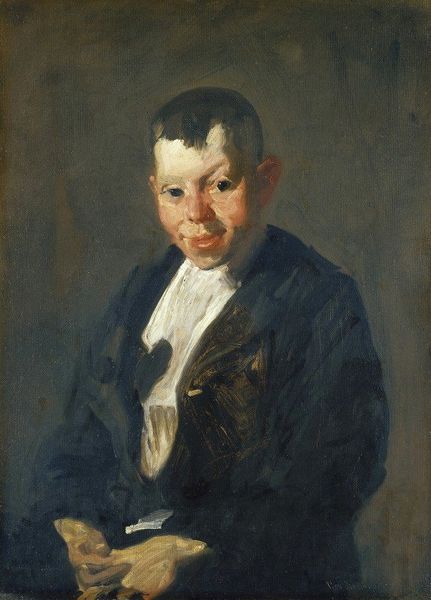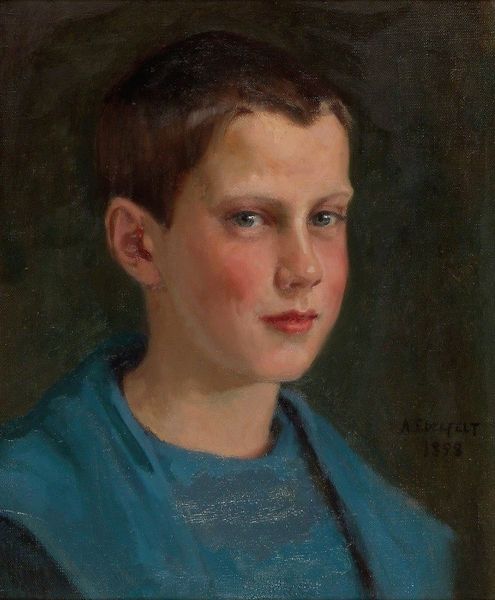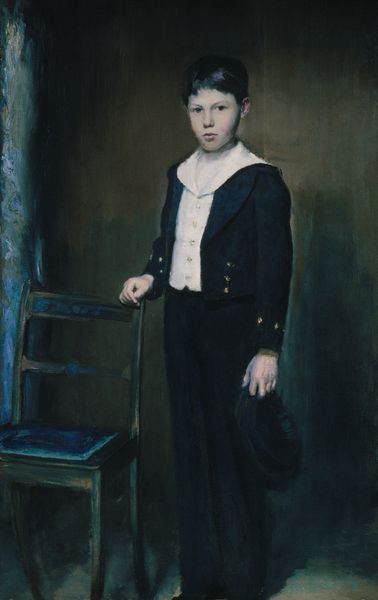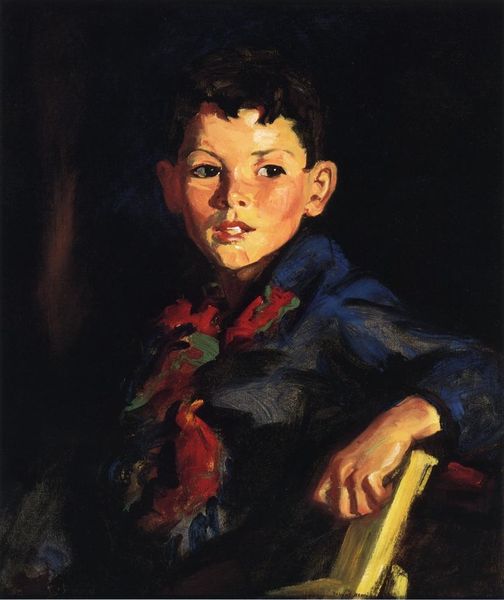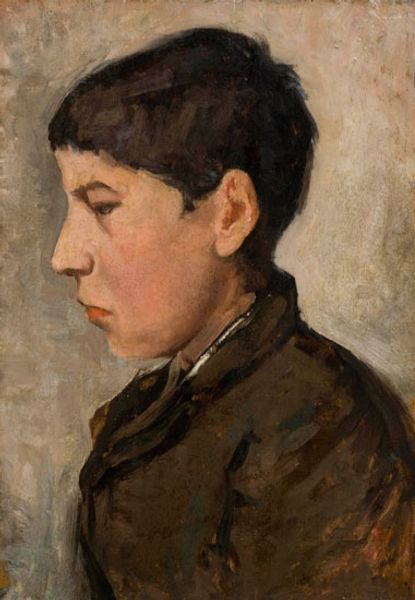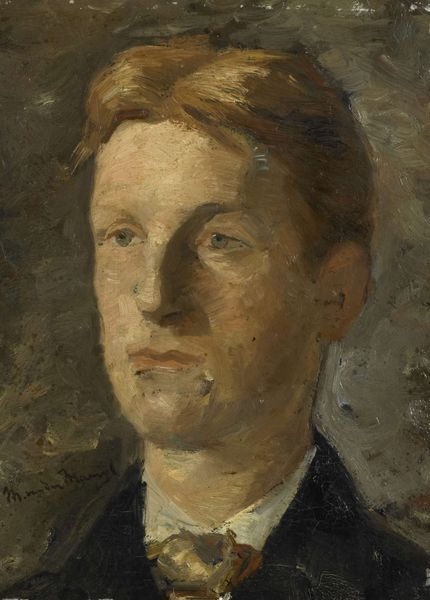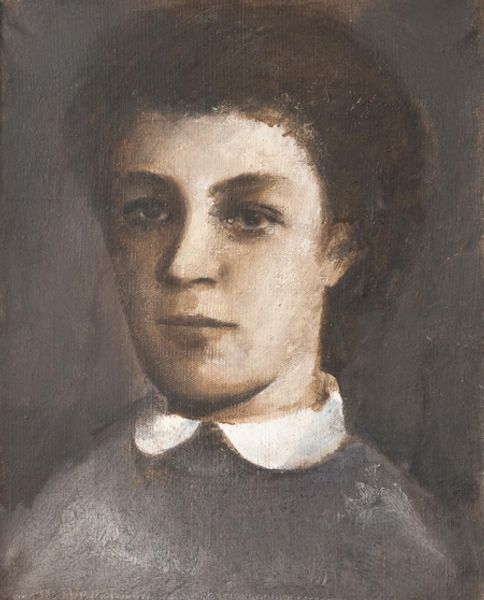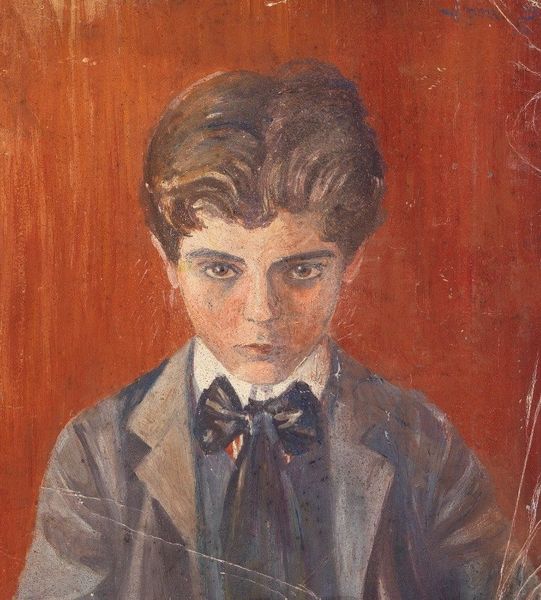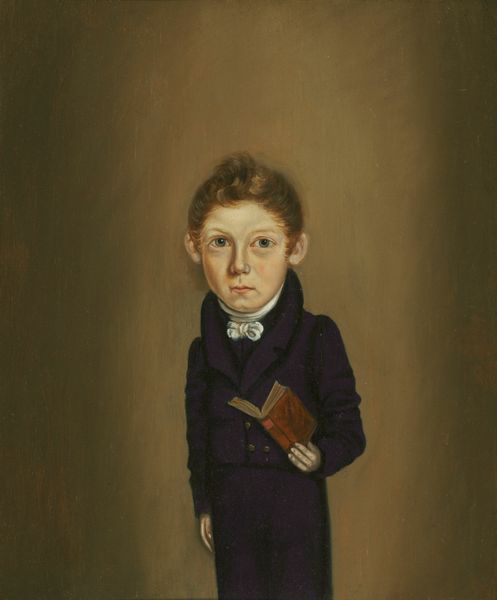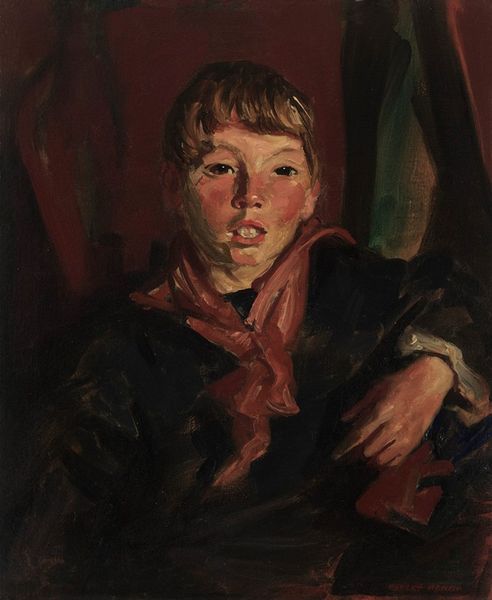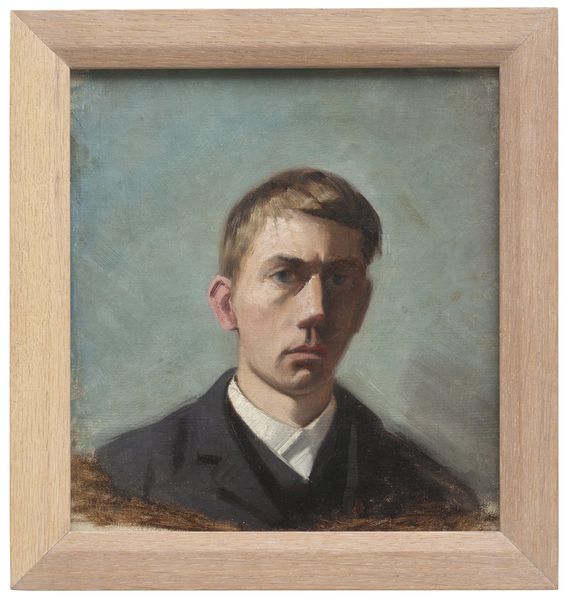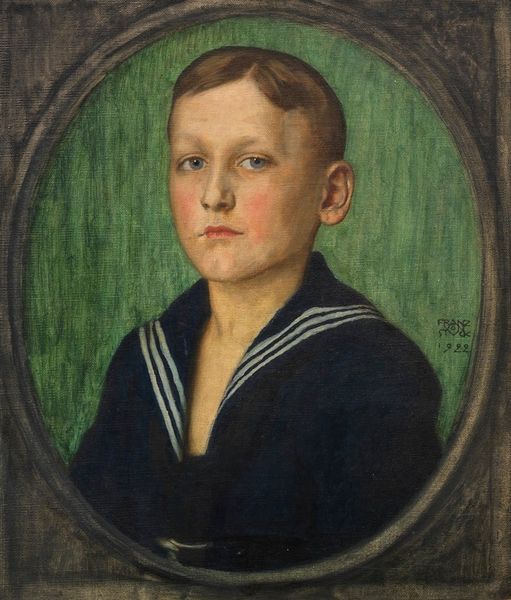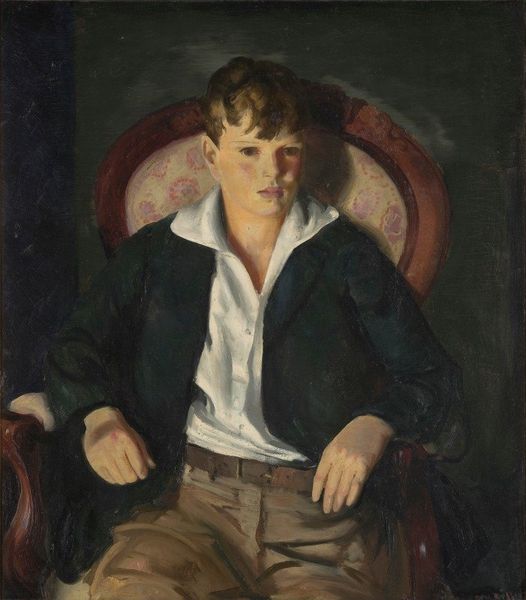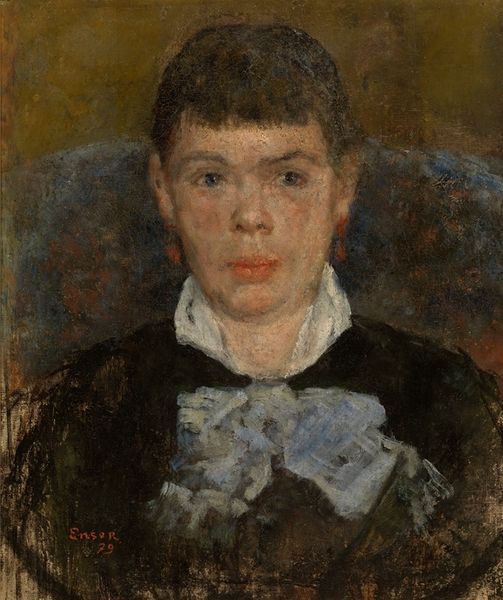
painting, oil-paint
#
portrait
#
painting
#
oil-paint
#
oil painting
#
post-impressionism
#
academic-art
Copyright: Public Domain: Artvee
Editor: This is Paul Cézanne’s oil painting "Louis Guillaume," created sometime between 1879 and 1890. The somber tones create a serious mood; I’m curious how you see its composition and the artist’s choices in this work? Curator: The subject matter seems less important than the rigorous formal investigations that are taking place. Notice how Cézanne models form not through traditional shading, but by modulating color. Look at the planes that constitute the face. Editor: So, rather than seeing a portrait first and foremost, you're drawn to the almost geometric structure of it? Curator: Precisely. Note too, how the background, while seemingly representational, is flattened, almost pushing forward into the same picture plane as the figure. It anticipates the cubists' collapsing of space. Do you notice anything interesting about his application of paint? Editor: Yes, the brushstrokes seem very deliberate, almost blocky, and there’s a real awareness of texture. It's like he is constructing the image rather than simply painting it. Curator: Exactly. He's exploring the fundamental properties of paint and its potential to construct, rather than just depict. It moves beyond mere imitation. The almost arbitrary compositional structure anticipates a move away from conventional representation and towards something else. What do you think it achieves? Editor: For me, it pulls the focus away from the identity of the boy, instead emphasizing Cézanne's innovative methods and how this contributes to art history’s larger narrative. I appreciate understanding that.
Comments
No comments
Be the first to comment and join the conversation on the ultimate creative platform.
